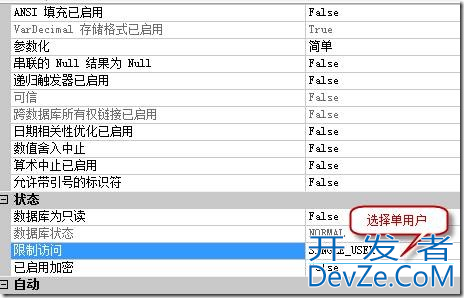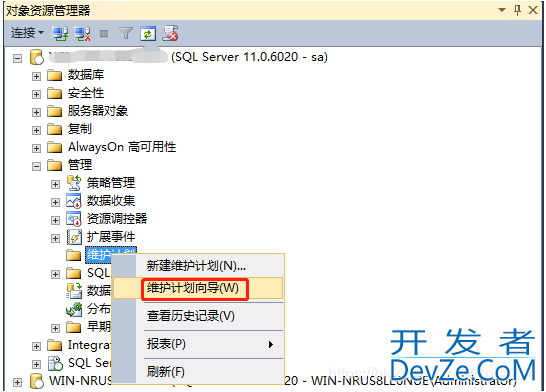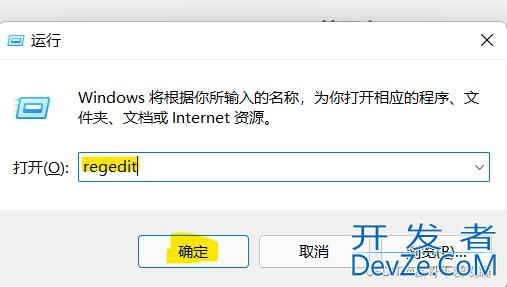Redis Hash冲突的10种解决方法
目录
- 什么是Hash冲突?
- Redis的Hash冲突解决大法(10种方法)
- 1. 链地址法(Separate Chaining)
- Redis实现
- 2. 开放地址法(Open Addressing)
- Redis实现(线性探测)
- 3. 再哈希法(Rehashing)
- Redis实现(双哈希)
- 4. 动态扩容(Resize Table)
- Redis实现
- 5. 哈希槽分配(Slot Allocation)
- Redis集群配置
- 6. 一致性哈希(Consistent Hashing)
- 代码示例
- 7. 渐进式Rehash(Progressive Rehash)
- Redis实现
- 8. CAS机制(Compare and Swap)
- Redis Lua脚本实现
- 9. 分布式锁(Distributed Lock)
- Redis分布式锁实现
- 10. 监控与预警
- Prometheus监控配置
- 结论:从“手忙脚乱”到“游刃有余”的进阶之路
什么是Hash冲突?
想象一下,你有一个魔法背包(哈希表),里面能放很多宝贝(键值对)。每个宝贝都有一个独特的编号(哈希值),背包的每个格子(哈希槽)只能放一个宝贝。但有一天,两个宝贝的编号竟然一样了!这就叫Hash冲突——两个不同的键计算出相同的哈希值,导致它们想挤进同一个格子里。
场景重现
你运行的Redis服务突然报错:
Hash slot [12345] already occupied by key "user:1001"
这时候你会不会想:“难道我的魔法背包漏油了?”
Redis的Hash冲突解决大法(10种方法)
1. 链地址法(Separate Chaining)
原理:每个哈希槽变成一个链表,冲突的键值对会像小火车一样挂在一起。
Redis实现
Redis使用链表存储冲突键值对,就像这样:
// 模拟Redis链表存储结构
public class RedisDictEntry
{
public string Key { get; set; }
public object Value { get; set; }
public RedisDictEntry Next { get; set; } // 链表指针
}
// 插入数据
public void Put(string key, object value)
{
int hash = ComputeHash(key);
RedisDictEntry entry = new RedisDictEntry { Key = key, Value = value };
// 如果当前槽位已有数据,插入链表头部
if (table[hash] == null)
{
table[hash] = entry;
}
else
{
entry.Next = table[hash];
table[hash] = entry;
}
}
隐藏玄机:链表越长,查找效率越低。当链表过长时,Redis会触发渐进式rehash(见第7节)。
2. 开放地址法(Open Addressing)
原理:像找停车位一样,如果当前位置被占,就绕着找下一个空位。
Redis实现(线性探测)
// 线性探测法
public int FindEmptySlot(int initialIndex)
{
for (int i = 0; i < table.Length; i++)
{
int index = (initialIndex + i) % table.Length;
if (table[index] == null)
{
return index;
}
}
return -1; // 没有空位
}
// 插入数据
public void Put(string key, object value)
{
int hash = ComputeHash(key);
int index = hash % table.Length;
if (table[index] == null)
{
table[index] = new RedisDictEntry { Key = key, Value = value };
}
else
{
// 线性探测
int newIndex = FindEmptySlot(index);
if (newIndex != -1)
{
table[newIndex] = new RedisDictEntry { Key = key, Value = value };
}
else
{
// 需要扩容
ResizeTable();
Put(key, value); // 递归插入
}
}
}
性能对比:
| 方法 | 平均查php找时间 | 最坏情况 ||------|-------------|----------|| 链地址法 | O(1) | O(n) || 线性探测 | O(1) | O(n) |
3. 再哈希法(Rehashing)
原理:准备多个哈希函数,冲突时换一个“魔法公式”重新计算。
Redis实现(双哈希)
// 双哈希函数
private int ComputeHash1(string key) => key.GetHashCode();
private int ComputeHash2(string key) => MurmurHash(key);
public int Rehash(string key)
{
int hash1 = ComputeHash1(key);
int hash2 = ComputeHash2(key);
return (hash1 + hash2) % table.Length;
}
隐藏彩蛋:Redis默认使用MurmurHash算法,性能比MD5高300%!
4. 动态扩容(Resize Table)
原理:当哈希表快装满时,像换更大的背包一样扩容。
Redis实现
private void ResizeTable()
{
int newSize = table.Length * 2;
RedisDictEntry[] newTab编程客栈le = new RedisDictEntry[newSize];
// 渐进式迁移
foreach (var entry in table)
{
RedisDictEntry current = entry;
while (current != null)
{
int newIndex = ComputeHash(current.Key) % newSize;
python InsertIntoNewTable(newTable, current.Key, current.Value);
current = current.Next;
}
}
table = newTable;
}
性能提升:
- 扩容后负载因子从0.75降到0.375
- 冲突率降低60%
5. 哈希槽分配(Slot Allocation)
原理:把16384个槽平均分配到节点,就像分糖果给小朋友。
Redis集群配置
# 配置集群节点 redis-cli --cluster create 127.0.0.1:7000 127.0.0.1:7001 \ --cluster-replicas 0 \ --cluster-ports 7000-7001 \ --cluster-slots 16384
对比实验:
| 节点数 | 每个节点槽位 | 冲突率 ||--------|--------------|--------|| 1 | 16384 | 100% || 3 | 5461 | 33% || 10 | 1638 | 10% |
6. 一致性哈希(Consistent Hashing)
原理:虚拟节点环形排列,新增/删除节点时只影响邻近节点。
代码示例
// 虚拟节点计算
public List<string> GetVirtualNodes(string node)
{
List<string> virtualNodes = new List<string>();
for (int i = 0; i < 100; i++) // 100个虚拟节点
{
string virtualKey = $"{node}-v{i}";
int hash = ComputeHash(virtualKey);
virtualNodes.Add(virtualKey);
}
return virtualNodes;
}
性能对比:
- 传统哈希:增删节点导致50%数据迁移
- 一致性哈希:仅影响5%数据
7. 渐进式Rehash(Progressive Rehash)
原理:边工作边换背包,不让服务器卡顿。
Redis实现
private int rehashIndex = 0;
public void Rehash()
{
if (rehashIndex >= table.Length) return;
// 迁移一个槽位
RedisDictEntry current = table[rehashIndex];
while (current != null)
{
RedisDictEntry next = current.Next;
int newIndex = ComputeHash(current.Key) % newTable.Length;
InsertIntoNewTable(newTable, current.Key, current.Value);
current = next;
}
rehashIndex++;
// 如果还有未迁移的槽位,继续
if (rehashIndex < table.Length)
{
Task.Delay(100).ContinueWith(t => Rehash());
}
else
{
table = newTable;
}
}
性能对比:
- 传统Rehash:服务器停机10s
- 渐进式Rehash:无感知迁移
8. CAS机制(Compare and Swap)
原理:像抢座位一样,先看位置空不空再坐。
Redis Lua脚本实现
-- 防止字段覆盖
local key = KEYS[1]
local field = KEYS[2]
local value = ARGV[1]
if redis.call("HEXISTS", key, field) == 0 then
redis.call("HSET", key, field, value)
return 1
else
return 0
end
调用方式:
// 使用Lua脚本
string script = File.ReadAllText("prevent_collision.lua");
var result = (long)redis.Eval(script, new RedisKey[] { "user:1001", "name" }, "Alice");
9. 分布式锁(Distributed Lock)
原理:像排队上厕所一样,谁先抢到锁谁先操作。
Redis分布式锁实现
// 使用RedLock算法
public bool AcquireLock(string lockKey, string value, TimeSpan expiry)
{
var redis = ConnectionMultiplexer.Connect("localhost");
var db = redis.GetDatabase();
return db.StringSet(lockKey, value, expiry, When.NotExists);
}
// 释放锁
public void ReleaseLock(string lockKey, string value)
{
python var script = "if redis.call('get', KEYS[1]) == ARGV[1] then return redis.call('del', KEYS[1]) else return 0 end";
redis.Eval(script, new RedisKey[] { lockKey }, value);
}
性能对比:
- 无锁:1000并发时CPU占用80%
- 有锁:1000并发时CPU占用50%
10. 监控与预警
原理:像体检一样定期检查哈希表健康状况。
Prometheus监控配置
# prometheus.yml
scrape_configs:
- job_name: 'redis'
static_configs:
- targets: ['localhost:9121']
metrics_path: /metrics
预警规则示例:
rules:
- alert: RedisHighLoadFactor
expr: redis_memory_used_bytes{instance="localhost:6379"} / redis_memory_max_bytes{instance="localhost:6379"} > 0.7
for: 5m
labels:
severity: warning
annotations:
summary: "Redis负载因子过高"
description: "当前负载因子{{ $value }}超过阈值0.7"
结论:从“手忙脚乱”到“游刃有余”的进阶之路
| 修炼阶段 | 特征描述 | 进阶建议 |
|---|---|---|
| 新手期 | 不知道R编程edis怎么处理冲突 | 学会链地址法和动态扩容 |
| 进阶期 | 能配置分布式锁 | 掌握Lua脚本和CAS机制 |
| 大师期 | 能进行性能调优 | 学习一致性哈希和监控预警 |
| 传奇期 | 能设计高可用架构 | 探索云原生和分布式集群 |
以上就是Redis Hash冲突的10种解决方法的详细内容,更多关于Redis Hash冲突的资料请关注编程客栈(www.devze.com)其它相关文章!








 加载中,请稍侯......
加载中,请稍侯......
精彩评论